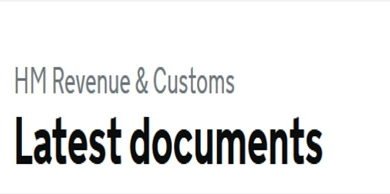Accountants need to be aware of allegedly illegal activity by umbrella companies and, where necessary, take action. BBC’s Money Box has exposed the use of umbrella companies to cheat HMRC through payments to emergency workers. Philip Fisher investigates.
 istock_sesame_AW
istock_sesame_AW
For many years, HMRC has been playing cat and mouse with the tax avoidance industry. One of the Revenue’s biggest targets has been the conversion of what the man in the street would regard as salary into payments that escape income tax and/or National Insurance Contributions.
Last Saturday, Radio 4’s Money Box, which is still readily available on BBC Sounds, unusually devoted the whole programme to a single topic.
Its subject was the use of umbrella companies to avoid tax in just this manner. Indeed, the reason for the BBC’s obvious distaste was the marketing of schemes to take advantage of those working themselves into the ground in the health service, as they try to stem the pandemic.
HMRC shone its spotlight 54 on the marketing of such schemes to returning NHS workers back in March, and even today it is running adverts on social media warning NHS staff to avoid these schemes.
NHS re-joiners targeted by promoters of tax avoidance schemes
Without going into great detail, the sophisticated arrangements operate in a manner that will be familiar to many, although most readers might have expected that the abusive elements had disappeared following various legislative changes in the last few years.
Rather than receiving payments directly, the workers provide services through the auspices of an umbrella company. This guarantees to pay them (say) 78% of gross pay, even after taking what can turn out to be a very hefty fee.
The methodology is pretty simple. The taxpayer purportedly receives part of their pay in the form of a salary, which is correctly subjected to tax, with the rest described variously as a “repayment” or “bonus”. These latter amounts are, according to the promoters, not subject to tax or NIC and need not be reported at all to HMRC.
As an old colleague of mine, the solicitor and barrister David Pett, confirmed in the programme, there are a number of different approaches that HMRC could take but, whichever is favoured, these payments are fully taxable. The most forceful and convincing approach would be to impose charges under the disguised remuneration legislation, which seems to fit the bill perfectly.
You can bet that in a few years’ time, when HMRC catches up with the unfortunate healthcare workers and they are obliged to pay all of the back taxes, along with interest and a hefty penalty, the promoters who guaranteed that the scheme was watertight will either have disappeared from the face of the earth or claim that it worked at the time and refuse to assist or provide compensation.
Tax avoidance becomes fraud
In the conversation, the arrangements were described as “abusive tax avoidance”. However, if promoters instruct taxpayers to refer to payments in a misleading way and completely ignore them for tax purposes, HMRC could plausibly make the case that a more accurate description would be “fraud”.
There must be every chance that some tax inspector who listened to the broadcast while preparing lunch will now be on the case. Therefore, anyone receiving income from an umbrella company under arrangements that sound too good to be true might wish to review the position as a matter of urgency, as should their accountants.
The involvement of tax professionals in the development and marketing of these schemes should also be of particular concern to some readers.
First, there is the question about the validity of a counsel’s opinion. One of the promoters was keen to emphasise that they have received a green light from counsel. It is possible that they were lying. There is also a chance that they had an opinion based on out-of-date legislation. However, as Mr Pett observed, it is not unprecedented to discover that the views of distinguished tax barristers, some of them QCs, prove to be incorrect.
While the vast majority of barristers do a wonderful job in fairly determining the law for their clients, there are occasions when some appear to have been overly bold in giving opinions on the validity of potentially abusive tax avoidance schemes that ultimately fail.
Accountants can also get drawn into situations that could be career-threatening. Acting as what has become known as “an enabler” of a tax avoidance scheme can now get those in the profession into big trouble, if the scheme turns out to be abusive or, worse, is determined to be tax evasion rather than tax avoidance. Also accountants and tax advisers who are members of one the sponsoring bodies of the code: professional conduct in relation to taxation (PCRT) could find themselves up before the disciplinary board of their professional body.
There is much food for thought arising from a good piece of investigative journalism and readers are urged to listen to the broadcast and, if necessary, take protective action.
Philip Fisher Columnist




